Water Shortage: Our Role
WATER SHORTAGE: OUR ROLE (ISSUE 162) MARCH 17, 2015
By Diane Gold
WATER SHORTAGE
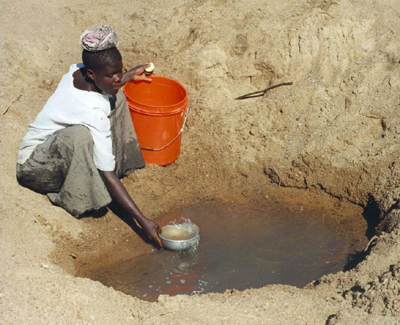 The reason I wrote this article was because I saw myself wasting water, even in the face of knowing that there is a water shortage. It really hit me when I had my own water shortage. I knew I was washing the dishes in my sink with the water running the entire time. I began to think that using a dishwasher, which my current residence lacks, might be more economical.
The reason I wrote this article was because I saw myself wasting water, even in the face of knowing that there is a water shortage. It really hit me when I had my own water shortage. I knew I was washing the dishes in my sink with the water running the entire time. I began to think that using a dishwasher, which my current residence lacks, might be more economical.
(According to the Water Resources section of whitehouse.gov [http://water.usgs.gov/edu/qa-home-percapita.html], my activity of washing for 3 minutes 2 times a day using a new faucet but an old sink uses about the same amount of water as one dishwasher load at 20 gallons per day. Too much.]
A CLOGGED SINK TEACHES COMPASSION
So, here’s what happened to my sink. It clogged. So, my water consumption came to a screeching halt. And I would have had to wait for a drain fixer until the following day if I had sat tight. That’s when I got a miniscule taste of feeling water shortage in the way that so many people do every day, and that is, not having water at my disposal when I wanted it.
True, I wasn’t really without water. I could Valley Girl myself into the bathroom and use water from the bathroom sink. But, I did not have my regular access, and the bathroom sink was too small for me to fill a pot with water. In my panic, I decided to go to the store and get some horrible chemicals to put down the sink that were guaranteed to fix the clog and pollute the Earth.
Although I felt sad at having to pour pollution into the pipe that would reach wherever it ended up, I did it anyway. It was guaranteed to work in 15 minutes, even though it took 12 hours.
The result was I was forever more cognizant of my water waste and continue to be so.
WHY IS THIS MY PROBLEM, OTHERS MIGHT ASK?
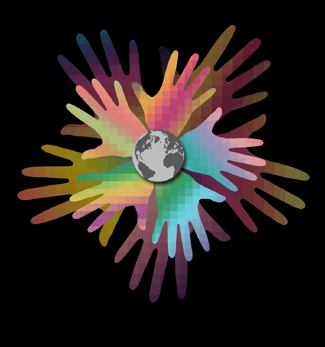 Some of us may not see there is a global water shortage. We don’t see 840,000,000 people in front of us every day who have no water. We say,
Some of us may not see there is a global water shortage. We don’t see 840,000,000 people in front of us every day who have no water. We say,
“What does this have to do with me? I have never been without water.
“I don’t use much water.
“There’s so much water from oceans that we can desalinate it if we have to.
“Only a few people in the centers of a few countries experience shortage.
“And what does this have to do specifically with my habits. They don’t have an effect water shortage.”
My response to those statements is clear, not because I am the most diligent person, but because we are not alone.
THE HUMAN FAMILY
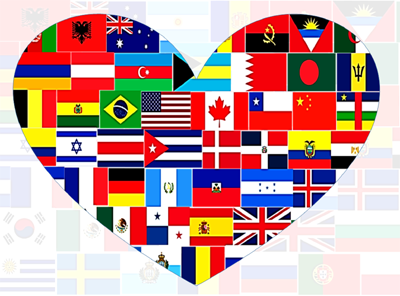 We forget quickly that we are part of one human family. If one part of our family is thirsty, then it is our responsibility to do something about it as if it were the people in our very house.
We forget quickly that we are part of one human family. If one part of our family is thirsty, then it is our responsibility to do something about it as if it were the people in our very house.
Remember the last hurricane, tornado, monsoon, tsunami that passed by?
People we never even spoke with before, who had lived in our village, on our street, right next door, up the avenue or field shared food, refrigeration, ice, concern, nurturing, and, yes, water. It was a magical transformation caused by our common environmental disaster.
Why are we so self-absorbed that we’re not like that every day? We all care about the people who are water insecure. Right?
FOOD CHOICE CAN WASTE WATER
Since life is so complicated, it is hard for us to think of water shortage unless it is right at our front door. It usually takes some heart wrenching photo of children’s misshapen bodies for our attention to be drawn to drought or lack of access to water. Imagine, though, that we are causing the continued water shortage by overuse. And how are we doing it?
According to the Water Footprint Network, 40 gallons of water are used to produce a pound of pulses (lentils, chickpeas, peas beans) compared to producing a pound of beef, which requires 45 times more water. So, our use of animals for food is one of our big wastes.
ACTION STEP
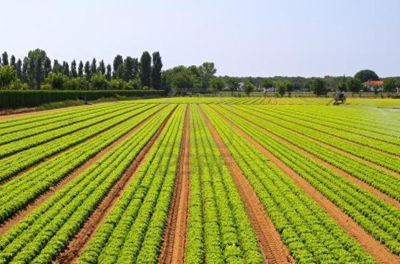 We could balance the water shortage by eating plants. That would allow everyone to have more water. According to everything I learned in my courses to become Certified in Plant-Based Nutrition, eating plants would prevent a bunch of chronic diseases and suffering; and it is not necessary to eat animal protein and most of us in the Western world are over-consuming protein.
We could balance the water shortage by eating plants. That would allow everyone to have more water. According to everything I learned in my courses to become Certified in Plant-Based Nutrition, eating plants would prevent a bunch of chronic diseases and suffering; and it is not necessary to eat animal protein and most of us in the Western world are over-consuming protein.
If we were eating plants, we could be teaching developing countries who are emulating us to grow plants efficiently, save their bodies and save the Earth. They would be spared learning the hard way that the amount of water it takes for raising animals and the disease statistics associated with eating meat, fish, poultry, dairy and the land we destroy are reason enough not to do it.
HOUSEHOLD CHOICES CAN WASTE WATER
Those of us who do not have to walk a mile to the water pump, and that’s most of us in the United States, take water for granted. We use water regularly for oral hygiene, in our toilets, for washing ourselves and cleaning our houses, to prepare food within our single family structure and to drink. Are we diligent, though? Yes, the amount we use in household is miniscule compared with the amounts used in agriculture. But, it still matters.
I mentioned earlier my personal waste. It turns out I was letting the water run the entire time I was brushing my teeth. For no reason other than that I liked the sound, I liked the feel of the water trickling on my toothbrush; but, mostly, because I forgot to turn it off, I was being wasteful and socially unacceptable. I also kept it running before and after filling my name brand electronic water flosser. Again, the amount of waste was not huge, but it was completely unnecessary. I’ve decided diligent water use matters.
By being diligent and turning the water off more often, I can maintain my 360 gallons or less a day for a single person in an apartment. I am taking responsibility for 15 minutes of watering the grass outside since I get to see it.
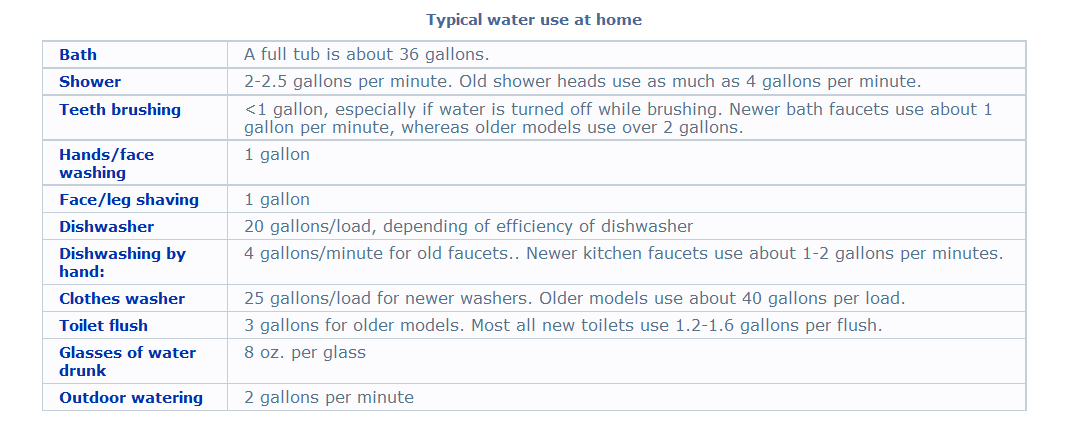
What the chart at the US Geological Surveys Water Science School does not take into account is the amount of water used to prepare our food. I am a plant-based eater, so I am using a smaller amount of water to grow my produce than someone who eats animal products. But, if I forgot about morality and ate 1 hamburger for the day, my water consumption would quadruple. Too much to be sustainable.
Plants require water to grow, but it is common knowledge they require less than animal based foods. I’ve seen statistics that animal-based food (including poultry, fish and dairy) use from 2.9 X more to 13 X more water, but I just know the number is considerably more.
CONCLUSION
I have read some surprising statistics about water, including, according to the Rural Community Assistance Partnership (from a document prior to April, 2009), that 1.7 million people in the United States live without plumbing facilities.
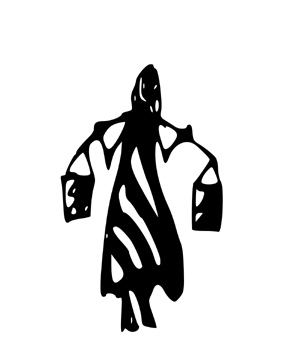 According to the April 29, 2011 article by Laurie Ure for CNN, nearly 1 billion people walk 3.5 miles a day to fill their jerry can to bring water home for the family. How often do those people get to their water source only to find a water shortage or a source that is dried up, closed, contaminated, unavailable? Something to think about.
According to the April 29, 2011 article by Laurie Ure for CNN, nearly 1 billion people walk 3.5 miles a day to fill their jerry can to bring water home for the family. How often do those people get to their water source only to find a water shortage or a source that is dried up, closed, contaminated, unavailable? Something to think about.
Let us be diligent to contribute positively to reduce water shortage by being connected to everyone in need, by considering our food choices and minimizing pollution, by composting and recycling, and, easiest of all, by reducing water waste that may be right in front of our eyes.
 Although there is water shortage, there are areas worldwide that can access water with the right equipment. World Water Day, March 22 2015, celebrates water and our awareness that it is not forever. If you wish to donate to build a well so that 500-1000 people can have access to groundwater near their home in Africa for 10 years, please do it at: https://thewaterproject.org/community/profile/diane-gold.
Although there is water shortage, there are areas worldwide that can access water with the right equipment. World Water Day, March 22 2015, celebrates water and our awareness that it is not forever. If you wish to donate to build a well so that 500-1000 people can have access to groundwater near their home in Africa for 10 years, please do it at: https://thewaterproject.org/community/profile/diane-gold.
![]()
If you wish to share your story, please hit reply in your email program to be contacted.
If you need habit help, go to warriorsofweight-consulting.
![]()
FEEDBACK
We value your feedback very much.
Please leave a comment below.
Please LIKE us on the website and at
WarriorsOfWeight on Facebook.
You can also follow us on Twitter @warriorsoweight.
Thanks.
![]()
DIANE GOLD, PUBLISHER AND AUTHOR
Diane Gold, Founder of Warriors of Weight, Turning Habits Into Health, is a mentor in tai chi, kung fu and meditation, a music, fitness and stress expert, dedicated mom, studying peaceful conflict resolution, habit replacement and certified in plant-based nutrition.
She cares about water. She says,
“I’m grateful for my sink’s having clogged. It gave me a great look at conservation of water in the kitchen. I’m grateful for noticing my toothbrush water, so I can reduce it.
“These are tiny things which, alone, amount to little, but, together, would be more meaningful. Let’s take a moment and consider that water is not renewing as quickly as we are using it. So, let’s use less. And let’s appreciate what we have more.
“Finally, let us all take good care of ourselves because we are so worth it!”
![]()

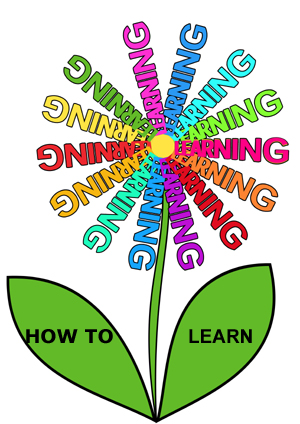 I can’t stress enough the importance of learning how to learn and how important it is to teach this from the start. Whether we are raised through education at home or by going to public or private school, one thing stands out: we each see through a different set of eyes. And our biggest mistake is not making first learners aware so they can decide for themselves the bias of their lessons. Learning How To Learn
I can’t stress enough the importance of learning how to learn and how important it is to teach this from the start. Whether we are raised through education at home or by going to public or private school, one thing stands out: we each see through a different set of eyes. And our biggest mistake is not making first learners aware so they can decide for themselves the bias of their lessons. Learning How To Learn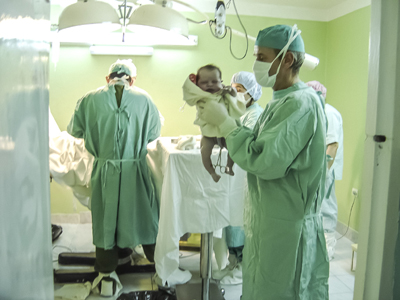 I am the first one to have blind faith and that most of us are good, nurturing and positive. The faith I would blindly follow, though is the understanding that we are all human, and humans, sometimes, without even knowing it, have internal agendas. When we are just born, we have not been influenced enough to be deceitful. After that, we can trust that the human spirit can be fickle. We can be blindly faithful in knowing that we all do our best to pass on the lesson, although doing our best usually includes our being influenced by how we have chosen to perceive the world.
I am the first one to have blind faith and that most of us are good, nurturing and positive. The faith I would blindly follow, though is the understanding that we are all human, and humans, sometimes, without even knowing it, have internal agendas. When we are just born, we have not been influenced enough to be deceitful. After that, we can trust that the human spirit can be fickle. We can be blindly faithful in knowing that we all do our best to pass on the lesson, although doing our best usually includes our being influenced by how we have chosen to perceive the world.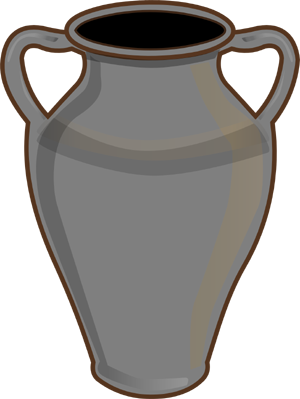
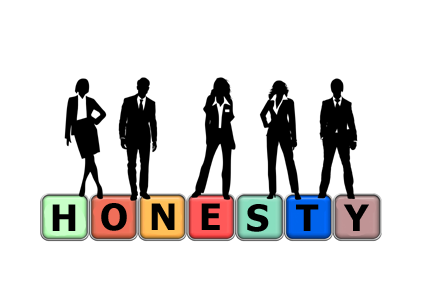 Let’s say we are going to hear a panel on whether it’s a good idea to genetically modify foods. As at any debate, we would hope to have all views present. In this case, the head speaker is the director of genetically modified foods industry, one panelist is in that person’s pocket and the third panelist is known not to speak out about GMOs.
Let’s say we are going to hear a panel on whether it’s a good idea to genetically modify foods. As at any debate, we would hope to have all views present. In this case, the head speaker is the director of genetically modified foods industry, one panelist is in that person’s pocket and the third panelist is known not to speak out about GMOs. In order to work this idea of emptying ourselves so that we can fill ourselves with knowledge, a basic learning how to learn principal; we must come up with some trust system by which we live. The one I live by is that we blindly believe that we all do our best, but we are not perfect and show understanding when someone else is not or when we, ourselves, are not.
In order to work this idea of emptying ourselves so that we can fill ourselves with knowledge, a basic learning how to learn principal; we must come up with some trust system by which we live. The one I live by is that we blindly believe that we all do our best, but we are not perfect and show understanding when someone else is not or when we, ourselves, are not.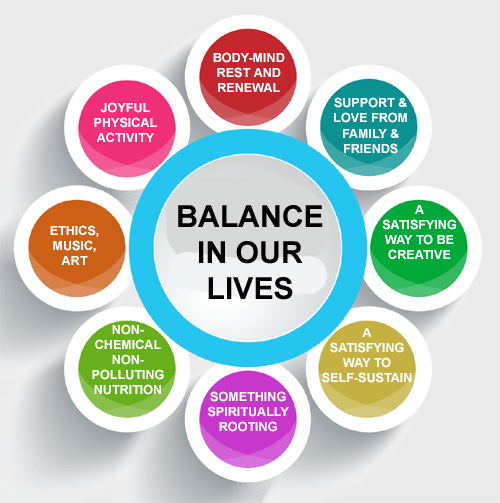 Balance in our lives seems like a “played out” expression, verbal hype that marketers, coaches or therapists (sometimes hard to tell them apart until we look at their wall) use to lure us into buying their coaching programs. But the reason so many people seek out the programs (like
Balance in our lives seems like a “played out” expression, verbal hype that marketers, coaches or therapists (sometimes hard to tell them apart until we look at their wall) use to lure us into buying their coaching programs. But the reason so many people seek out the programs (like 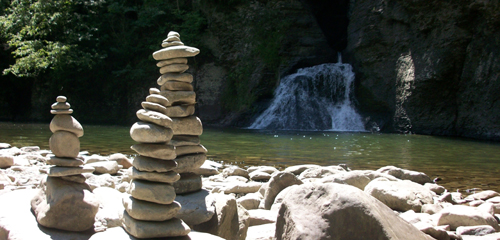
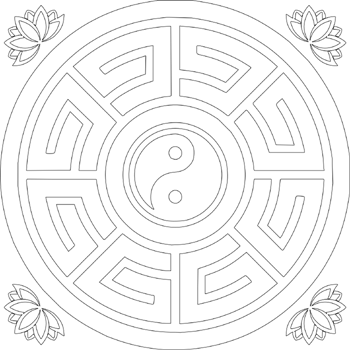
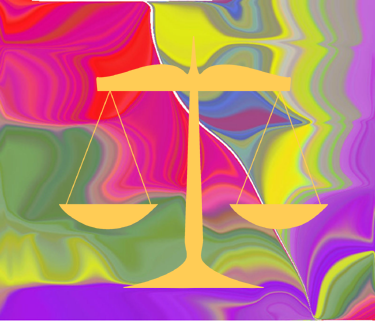 The balance in our lives is really a process. It’s not one place we obtain and stay. As with the wind, there are always new goals, new conditions, new feelings, new advantages, new obstacles for which or from which to adapt.
The balance in our lives is really a process. It’s not one place we obtain and stay. As with the wind, there are always new goals, new conditions, new feelings, new advantages, new obstacles for which or from which to adapt.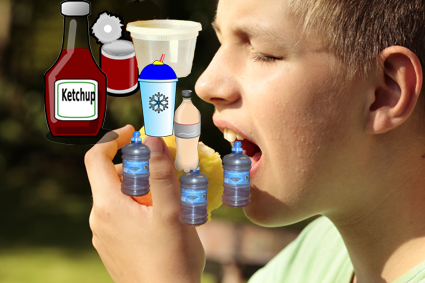 Most of us consume plastics in food. We don’t set out to do it, but some of our plastic technology disintegrates into our food and, therefore, into our blood.
Most of us consume plastics in food. We don’t set out to do it, but some of our plastic technology disintegrates into our food and, therefore, into our blood.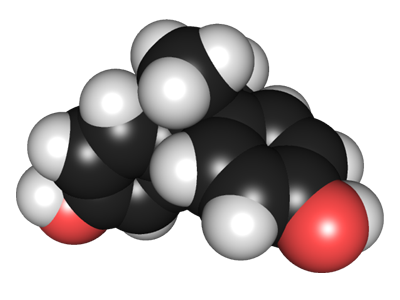 Bisphenol A (BPA) is a chemical that has been studied to find that it can disrupt estrogen. It is found as one of the ingredients in many plastics.
Bisphenol A (BPA) is a chemical that has been studied to find that it can disrupt estrogen. It is found as one of the ingredients in many plastics.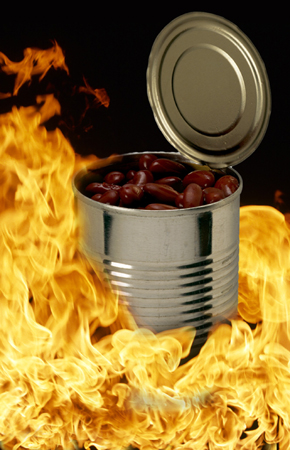 The National Congress Of Legislatures lists the following:
The National Congress Of Legislatures lists the following: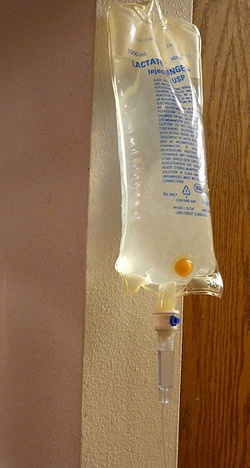 Phthalates are chemicals used in plastic to make it softer or more pliable. Picture one of those IV bags up on a pole that we see on TV or have received in the hospital to get fluids or medicine. The ones in the hospital contain DEHP, diethylhexyl phthalate. It makes the plastic less stiff so bags can be made with thickness to insure non-breakage.
Phthalates are chemicals used in plastic to make it softer or more pliable. Picture one of those IV bags up on a pole that we see on TV or have received in the hospital to get fluids or medicine. The ones in the hospital contain DEHP, diethylhexyl phthalate. It makes the plastic less stiff so bags can be made with thickness to insure non-breakage.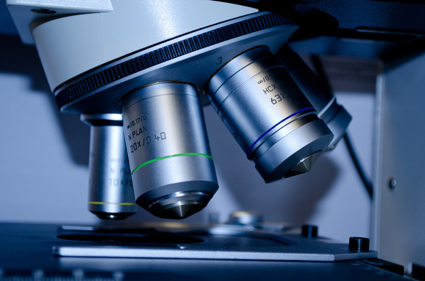 Why would no company or agency do research on whether or not plastics are safe? The answer has to do with, you may have guessed it, profit. If companies did research about plastics in food, chances are, someone would hear about it and publish the results The big D companies and the conglomerate cookware companies don’t want to do any research that might show their products are dangerous. They also discourage others from doing them.
Why would no company or agency do research on whether or not plastics are safe? The answer has to do with, you may have guessed it, profit. If companies did research about plastics in food, chances are, someone would hear about it and publish the results The big D companies and the conglomerate cookware companies don’t want to do any research that might show their products are dangerous. They also discourage others from doing them.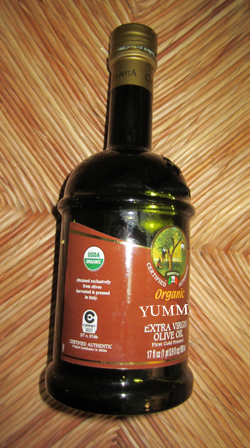 Olive oil science is much more elusive than discussions about how great olive oil is. There is lots of vague discussion about how it is bad for us when it smokes. Much like treated wood when it burns, the olive oil spits out toxins which produce free radicals, nasty suckers that cruise the body for a place to move in and couple. My goal in writing his article was to find the science behind all the generic verbiage about what happens to olive oil at smoke point.
Olive oil science is much more elusive than discussions about how great olive oil is. There is lots of vague discussion about how it is bad for us when it smokes. Much like treated wood when it burns, the olive oil spits out toxins which produce free radicals, nasty suckers that cruise the body for a place to move in and couple. My goal in writing his article was to find the science behind all the generic verbiage about what happens to olive oil at smoke point.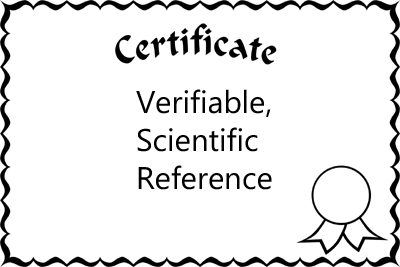 During my olive oil science search, I read about many TV chefs who use extra virgin olive oil for sauteing, roasting and grilling and lots of consumer opins about how, if the TV chef says it, it must be right.
During my olive oil science search, I read about many TV chefs who use extra virgin olive oil for sauteing, roasting and grilling and lots of consumer opins about how, if the TV chef says it, it must be right.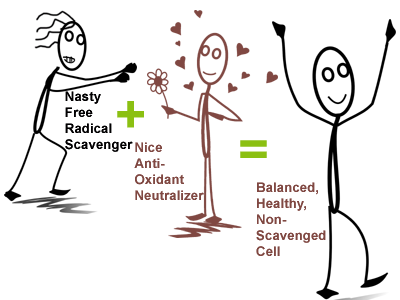 Happily for all of us, Mark goes on to cite an article that explains what is produced and what is toxic about it, for which I thank him. It is from Science Daily’s June 17, 2005 article, sourced from Elhuyar Fundazioa (translated to Language Foundation), from U of the Basque Country Pharmacy Faculty.
Happily for all of us, Mark goes on to cite an article that explains what is produced and what is toxic about it, for which I thank him. It is from Science Daily’s June 17, 2005 article, sourced from Elhuyar Fundazioa (translated to Language Foundation), from U of the Basque Country Pharmacy Faculty.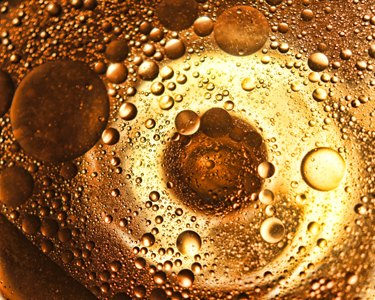 “You cannot test oil for its smoking point on your stove. The so-called ‘smoking point’ is actually the point at which the molecules of your oil start falling apart. This happens long before there is any visible smoke above the pan. At the point where you can see the smoke, it is already too late.” (rumtscho at stackexchange.com)
“You cannot test oil for its smoking point on your stove. The so-called ‘smoking point’ is actually the point at which the molecules of your oil start falling apart. This happens long before there is any visible smoke above the pan. At the point where you can see the smoke, it is already too late.” (rumtscho at stackexchange.com)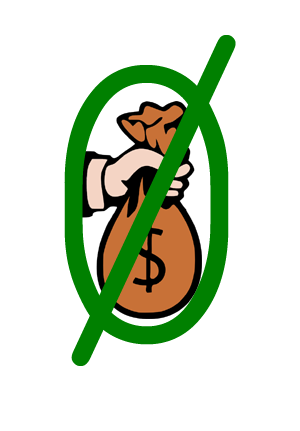 Our habit of not paying for our food is common. Since most of us are basically moral and would not thoughtfully take food without growing it or compensating the grower for it, this statement needs further discussion. We’ll start with the upfront premise that it is our duty to preserve our humanity and whatever else lives on our planet with good food.
Our habit of not paying for our food is common. Since most of us are basically moral and would not thoughtfully take food without growing it or compensating the grower for it, this statement needs further discussion. We’ll start with the upfront premise that it is our duty to preserve our humanity and whatever else lives on our planet with good food. Newsflash! Currently, no one pays a monetary price for this. Everyone’s grandchildren will pay for it.
Newsflash! Currently, no one pays a monetary price for this. Everyone’s grandchildren will pay for it.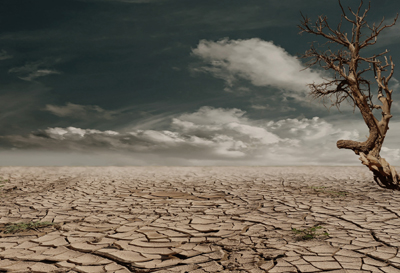 This means no one pays financially for the circumstances we create, and no one pays to clean what we dirty.
This means no one pays financially for the circumstances we create, and no one pays to clean what we dirty.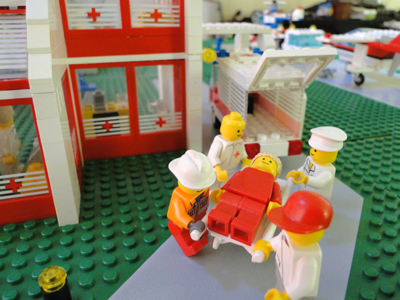 (If we wanted to look from a health perspective, we also pay because eating meat, fish, fowl and dairy cause health issues. So, we pay with our health.)
(If we wanted to look from a health perspective, we also pay because eating meat, fish, fowl and dairy cause health issues. So, we pay with our health.) If we don’t educate ourselves because we listen to Big News which is close friends with Big Agro which miseducates us or omits how agriculture drives global depletion fueled by our gluttony; we are closing our eyes and failing to learn. Many teachers are not yet aware of the vast differences in land, oceans, air, soil used to farm animals or plants. Even if we don’t mean to do it, if we don’t investigate how we are not paying, we perpetuate the hurt.
If we don’t educate ourselves because we listen to Big News which is close friends with Big Agro which miseducates us or omits how agriculture drives global depletion fueled by our gluttony; we are closing our eyes and failing to learn. Many teachers are not yet aware of the vast differences in land, oceans, air, soil used to farm animals or plants. Even if we don’t mean to do it, if we don’t investigate how we are not paying, we perpetuate the hurt.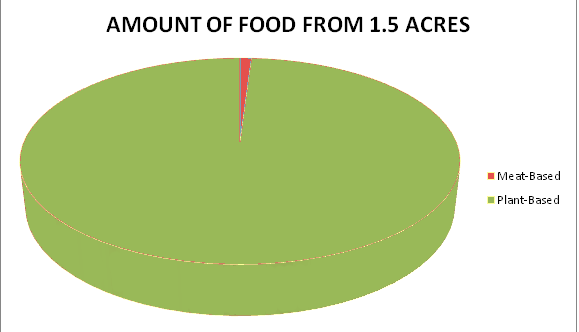 3)
3) 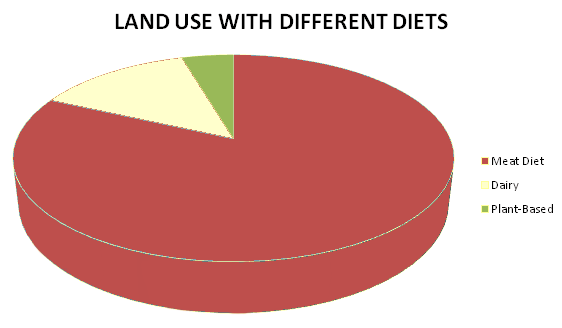 4)
4)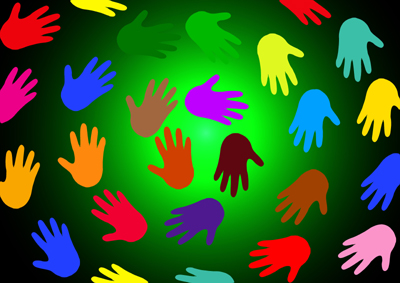 John Perkins told a story about the Shuar Tribe in Ecuador. One of the community came back to the elders with news that a plant along the trail was healthy when he went by, but 72 hours later, when he came back, the plant was sick. The elders had a council meeting, conferring with a wise one who said the plant gave a sign that the path was overused. They decided to take community responsibility and ruled to close the path.
John Perkins told a story about the Shuar Tribe in Ecuador. One of the community came back to the elders with news that a plant along the trail was healthy when he went by, but 72 hours later, when he came back, the plant was sick. The elders had a council meeting, conferring with a wise one who said the plant gave a sign that the path was overused. They decided to take community responsibility and ruled to close the path.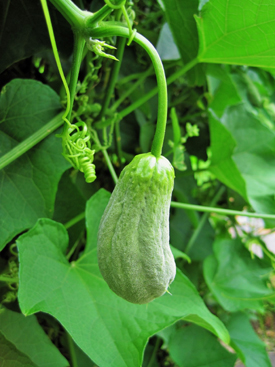
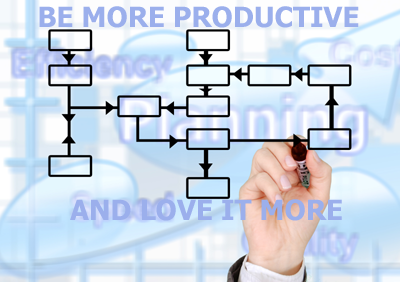 To be more productive and love it more, (1), because we actually will be making a critical difference and (2), because we will be having a great time doing it, is a common aspiration. Who can make that happen, though? There are so many compromises and lots of complicated layers to everything.
To be more productive and love it more, (1), because we actually will be making a critical difference and (2), because we will be having a great time doing it, is a common aspiration. Who can make that happen, though? There are so many compromises and lots of complicated layers to everything. Let’s say we wish to manage a project, but no one has assigned us this role. We can create our own project so that we create our own role as project manager. This can be done as part of what we do for our daily livelihood or as our own personal project. It can be for 1 minute a day. Everyone has that much time. It can also be for an hour.
Let’s say we wish to manage a project, but no one has assigned us this role. We can create our own project so that we create our own role as project manager. This can be done as part of what we do for our daily livelihood or as our own personal project. It can be for 1 minute a day. Everyone has that much time. It can also be for an hour.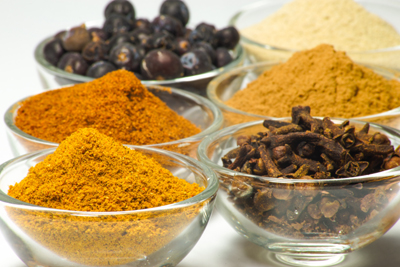 When we make our own food, we are caring for ourselves. We get to create nutritious art plus we get to make ourselves healthy by choosing ingredients that include vitamins, minerals, nutrients and phytonutrients that fortify us from harm and make us strong.
When we make our own food, we are caring for ourselves. We get to create nutritious art plus we get to make ourselves healthy by choosing ingredients that include vitamins, minerals, nutrients and phytonutrients that fortify us from harm and make us strong.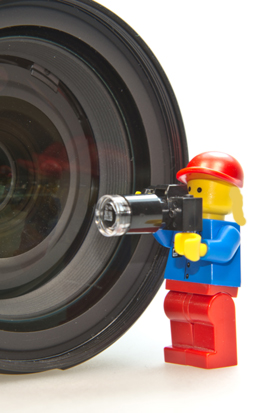
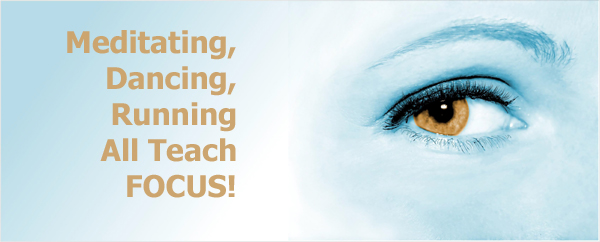
 This one seems easy. Because we have such full days, we sometimes tend to overdo it before settling down to sleep. At these times, we might find we have not left enough sleep time to feel rested and awesome for our next day.
This one seems easy. Because we have such full days, we sometimes tend to overdo it before settling down to sleep. At these times, we might find we have not left enough sleep time to feel rested and awesome for our next day. Making a difference is certainly subjective. There’s no disputing, though, that every move we make changes something. While one person might plant spices to get personal produce, someone else might be a mentor in a literacy program and another someone else might create a way to keep food stored more efficiently. Yet another person might be the clerk in a grocery store or someone’s car washer.
Making a difference is certainly subjective. There’s no disputing, though, that every move we make changes something. While one person might plant spices to get personal produce, someone else might be a mentor in a literacy program and another someone else might create a way to keep food stored more efficiently. Yet another person might be the clerk in a grocery store or someone’s car washer.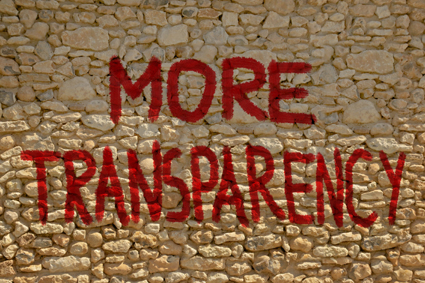 Food labeling is big, because, in order to notice what we eat, we have to know what’s in and on our food. And, our regulating agency, the Food & Drug Administration, has a slow and archaic way of labeling so that most of us don’t know what’s in and on our food. The chemical name for an ingredient doesn’t tell us if it is derived from animal, plant, microbe or a synthetic substance, and, wax coatings on produce don’t have a requirement to be as specific as I would like.
Food labeling is big, because, in order to notice what we eat, we have to know what’s in and on our food. And, our regulating agency, the Food & Drug Administration, has a slow and archaic way of labeling so that most of us don’t know what’s in and on our food. The chemical name for an ingredient doesn’t tell us if it is derived from animal, plant, microbe or a synthetic substance, and, wax coatings on produce don’t have a requirement to be as specific as I would like.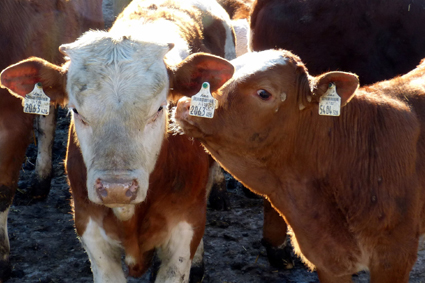 One of the most important things to me is to make certain people realize that every time we make a choice, we effect something. This includes the space in which we live, the air we breathe, the water we need, our forests and jungles and the other creatures with whom we share the planet. When we farm animals, we are using their lives at our whim. Plus, if all we care about is human advantage, animal agriculture depletes more resources than anything else. So we are not protecting our own interests.
One of the most important things to me is to make certain people realize that every time we make a choice, we effect something. This includes the space in which we live, the air we breathe, the water we need, our forests and jungles and the other creatures with whom we share the planet. When we farm animals, we are using their lives at our whim. Plus, if all we care about is human advantage, animal agriculture depletes more resources than anything else. So we are not protecting our own interests.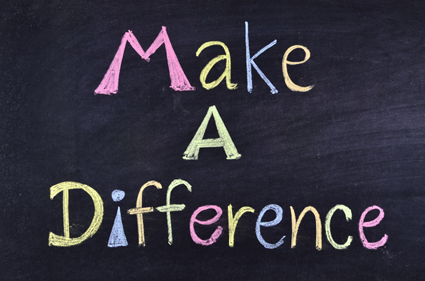
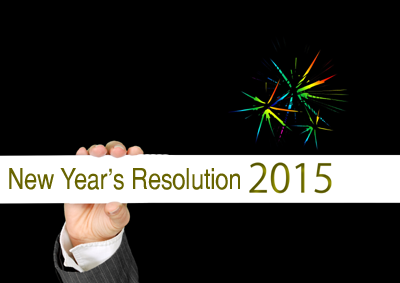
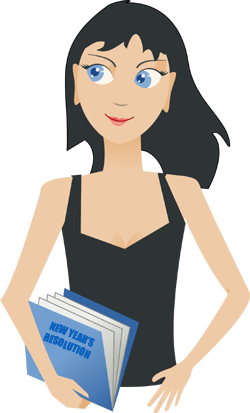 There is a ritual of creating the New Year’s Resolution. This ritual is popular, so it turns into a habit by the very nature of peers questioning,
There is a ritual of creating the New Year’s Resolution. This ritual is popular, so it turns into a habit by the very nature of peers questioning,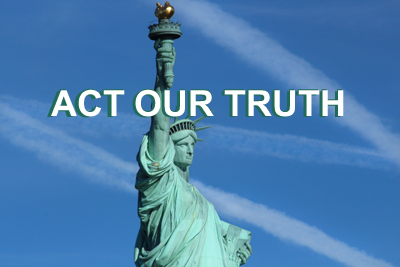 It is crucial to understand the difference between personally subscribing to peer pressure and externally accommodating the rules of peer pressure to be in harmony with society. We can decide that we, personally, do not put much value in the group ethic or what the group of peers is saying, or I may care about one group, and you may care about another. It’s important to act our truth. We may decide to act in a particular social manner so that peers can enjoy interacting with us and eventually understand our focus. We choose how far we compromise our ultimate truth, if, at all.
It is crucial to understand the difference between personally subscribing to peer pressure and externally accommodating the rules of peer pressure to be in harmony with society. We can decide that we, personally, do not put much value in the group ethic or what the group of peers is saying, or I may care about one group, and you may care about another. It’s important to act our truth. We may decide to act in a particular social manner so that peers can enjoy interacting with us and eventually understand our focus. We choose how far we compromise our ultimate truth, if, at all.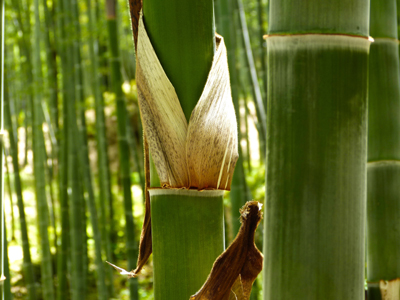 Let’s say there are two kinds of clothing to wear, and, for today’s example, we don’t have the opportunity to make or obtain any other kind. One kind is stylish and looks runway-model-like. It is made from a combination of genetically modified cotton (which most of our cotton is) and a petroleum based fabric, polyester.
Let’s say there are two kinds of clothing to wear, and, for today’s example, we don’t have the opportunity to make or obtain any other kind. One kind is stylish and looks runway-model-like. It is made from a combination of genetically modified cotton (which most of our cotton is) and a petroleum based fabric, polyester.
 The Airplane Workout
The Airplane Workout There are 815 million U.S. travelers per year (rita.dot.gov), meaning 135,000 are subject to clotting in flight . According to hopkinsmedicine.org, 3% end up with a pulmonary embolism that ends up in death. That’s 4,000 people per year in the U.S. alone who could die from a clot that originated on an airplane.
There are 815 million U.S. travelers per year (rita.dot.gov), meaning 135,000 are subject to clotting in flight . According to hopkinsmedicine.org, 3% end up with a pulmonary embolism that ends up in death. That’s 4,000 people per year in the U.S. alone who could die from a clot that originated on an airplane.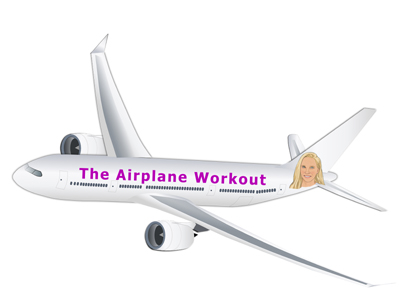
 Let’s talk about how we perceive the flight itself. Most of us figure we can get some rest, listen to music, engage in friendly talk with our neighbor, or do some business with no interruption. We could also dedicate our time to eating genetically modified peanuts, full of the worst kind of salt, as we progress along on our journey.
Let’s talk about how we perceive the flight itself. Most of us figure we can get some rest, listen to music, engage in friendly talk with our neighbor, or do some business with no interruption. We could also dedicate our time to eating genetically modified peanuts, full of the worst kind of salt, as we progress along on our journey. When we think about it, airplane time is the perfect arena for tuning up on fitness. There isn’t the distraction of other gym goers with whom to compare or socially pursue. There isn’t a lot of space to divert our attention. We can’t leave. And we don’t need any equipment.
When we think about it, airplane time is the perfect arena for tuning up on fitness. There isn’t the distraction of other gym goers with whom to compare or socially pursue. There isn’t a lot of space to divert our attention. We can’t leave. And we don’t need any equipment.






